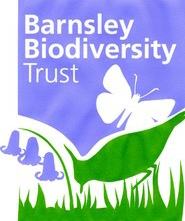

Biodiversity
Action
Plan
Conservation. Species-rich Acid Grassland sites in Barnsley are small in area, localised and fragmented; with some being lost or declining in condition: Acid Grassland is a priority for conservation.
Factors causing loss or decline
- Change of use of grassland by ploughing for arable crops, or shift to silage production with grass taken earlier in the year.
- Drainage, enrichment, herbicide and pesticide use, and re-seeding with nutrient-demanding rye-grass crops, poor in biodiversity.
- Over-grazing and compaction of grassland by livestock overstocking.
- Lack of grazing - coarse grass, rush, bracken, scrub encroachment.
- Loss of grassland sites due to housing, industrial and recreational development or use for tree planting / woodland creation.
- Inappropriate management in urban areas, with grasslands being intensively mowed, planted with non-native plants, and ‘tidied up’.
Legal protection
The Dark Peak SSSI in Barnsley includes acid grassland with some protection through this designation.
The Acid Grassland sites in Local Wildlife Sites have a presumption against development or change of use when planning consent is required.
Specific wildlife species in grassland habitats are protected under the Wildlife and Countryside Act. This includes intentionally or recklessly disturbing birds at, on or near an ‘active’ nest.
Good management practice for biodiversity:
Maintaining or returning to traditional low-intensity farming of semi-natural unimproved or semi-improved acid grassland.
- Avoiding ploughing and reseeding of pastures and meadows, except for restoration to semi-natural grassland; retaining damp pasture
- Reducing or eliminating the use of artificial fertilisers and herbicides
- Moderate to light grazing so that the vegetation structure maintains some diversity and not be reduced to a uniformly low sward
- Light grazing of pastures producing a short sward of about 5cm height in which wild flowers are prevalent
- Maintaining natural or sown areas of wildflowers
- Mowing meadows from mid-July to September to allow wildflower seeds to fall, followed by aftermath grazing or a second later cut before leaving until the following July
- Leaving some areas unmown, untopped or with lighter grazing; maintaining longer grass in less productive fields or field margins.
In addition
- Controlling or clearing scrub; preventing bracken encroachment, removing rank vegetation: ragwort, thistles, dock, nettles, etc
- Avoiding muck spreading, rolling, topping and harrowing in fields with ground breeding birds from April to July.

Links for advice and information
Magnificent meadows:guidance
RSPB: Grassland management for birds
RSPB: Grazing grassland
Buglife: Acid grassland management
NE: Assessing grassland priority habitat
Acid Grassland BAP priority habitat in favourable condition is denoted by:
≥ One frequent and three occasional Acid Grassland indicator species
< 5% undesirable species eg dock, nettle, thistle, ragwort , rosebay willowherb, …
< 20% bracken; < 5% scrub/bramble, encroachment
< 20% coarse grasses eg Cock’s-Foot, Yorkshire Fog.
< 10% bare ground.
From Farm Environment Plan guidance

Acid Grassland Conservation
See also guidance and requirements
for Countryside Stewardship and
New Environmental Land Management Schemes